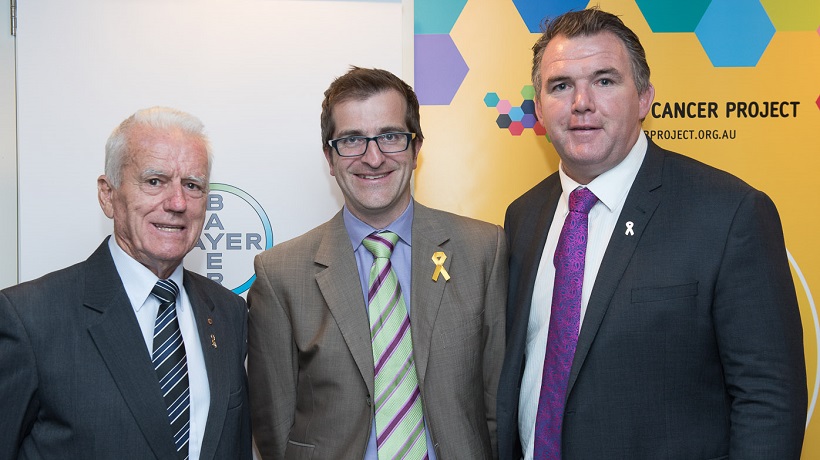
Here at The Kids’ Cancer Project, our mission is to reach a 100 percent survival rate in childhood cancers. Clinical trials are a crucial part of this mission, because they are taking the learnings from the lab directly to the bedside of sick kids – kids that may not have any options left. These kids can try a new drug, or a new combination of therapies, that might just save their lives and many others.
That’s why, five years ago, we donated over $1 million dollars to ANZCHOG (Australian and New Zealand Children’s Haematology/Oncology Group), an organisation that develops and facilitates clinical trials here.
“Five years ago, there were just three clinical trials run by ANZCHOG; in 2020, there are 16 trials, with five more in start-up stages.”
This money (lasting from 2015-2023) could go where it was needed to help increase clinical trials led by Australians, but also improve our involvement with ground-breaking international trials. Because so few kids are affected in Australia by the same childhood cancer at the same time, international trial collaboration is a vital way to get robust data that can usher in new and better cancer treatment.
We’re thrilled to share with you that The Kids’ Cancer Project funding has helped achieve a five-fold increase in the number of clinical trials sponsored by ANZCHOG.
Five years ago, there were just three trials run by ANZCHOG; in 2020, there are 16 trials, with five more in start-up stages. It’s a mighty achievement, and one that ANZCHOG outgoing chair Dr Chris Fraser says will “maximise access for Australian and New Zealand children to participate in innovative trials.”
3 ways Aussie kids are accessing new treatments through ANZCHOG’s clinical trials
Read more: The Australia-led NORTH Trial
Dr Fraser explains that The Kids’ Cancer Project support has helped grow ANZCHOG’s clinical trials in three key ways
A ground-breaking Clinical Trial Quality Assurance Program
This program uses ANZCHOG’s expertise to make all its trials run with the same standardised processes, the same quality review procedures, and valuable education opportunities. Funding from The Kids’ Cancer Project in 2017 means that now quality assurance has been expanded, formalised and structured and it's a real game-changer - ANZCHOG now has an even greater level of consistency and reliability to its trials, which makes their findings more trusted.
“The value of this program cannot be underestimated,” says Dr Fraser. “It is fundamental to enhancing our international reputation.”
Dr Fraser says it was ANZCHOG’s improved standing that led them in 2018 to become the Australian sponsor of international trials done through the renowned academic consortium ITCC (Innovative Therapies for Children with Cancer).
Flexible funding that gets trials off the ground
The Kids’ Cancer Project’s funding to ANZCHOG can be directed wherever it’s needed – some of it has gone behind-the-scenes to improve the general infrastructure of clinical trials, some of it has funded an unexpected cost of a particular trial, and some of it has even gone to purchasing bulk quantities of lab equipment that can be shared around Australia’s nine children’s cancer treatment centres. All of these things help trials get off the ground, which in turn increase future trials. Speedy trial activation is also highly regarded by our international collaborators and can directly influence access to future trials.
A new era of patient data collection
The Kids’ Cancer Project’s funding means that for the first time ever, there will be standardised data on every child aged up to 18 years who is newly diagnosed with cancer and gets treatment at a children’s cancer centre.
“Patient diagnosis data, their treatment and trial participation are a vital source of information for researchers,” Dr Fraser says.
Having this information not only informs future research, but immediately improves our international standing, opening doors to clinical trial collaboration.
The Kids’ Cancer Project’s funding partnership with ANZCHOG continues to 2023, and it’s exciting to think of how many more trials will have started by that time. There have been great leaps made, but more can be achieved.
“We look forward to continuing to work with The Kids’ Cancer Project team to improve outcomes for every child and adolescent diagnosed with cancer,” says Dr Fraser.
